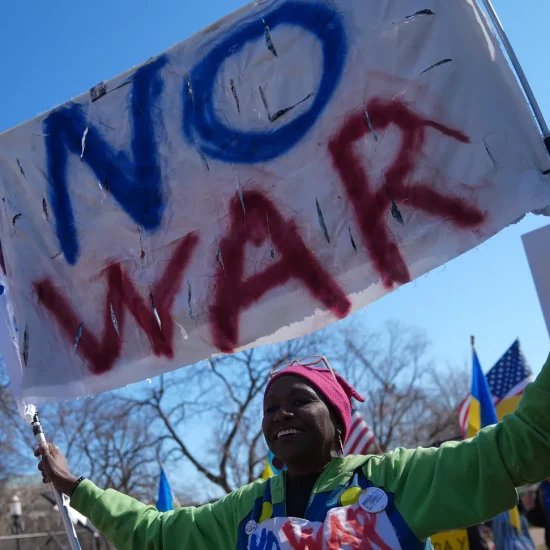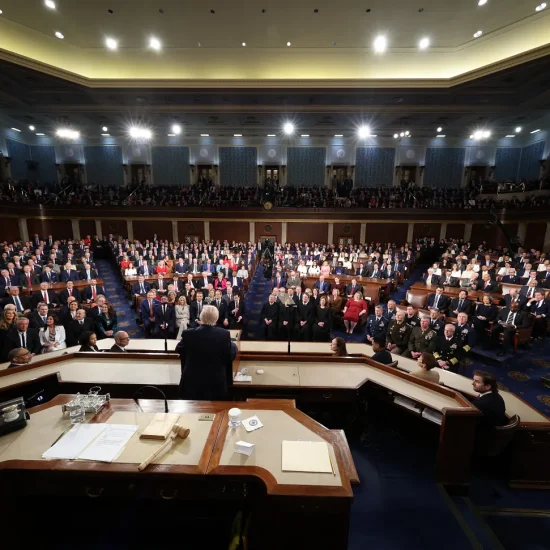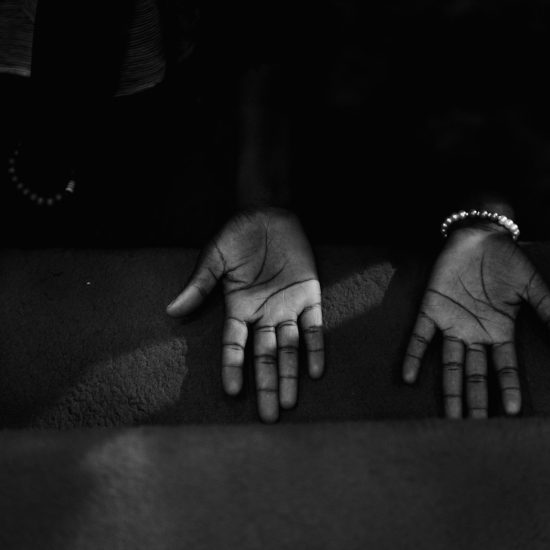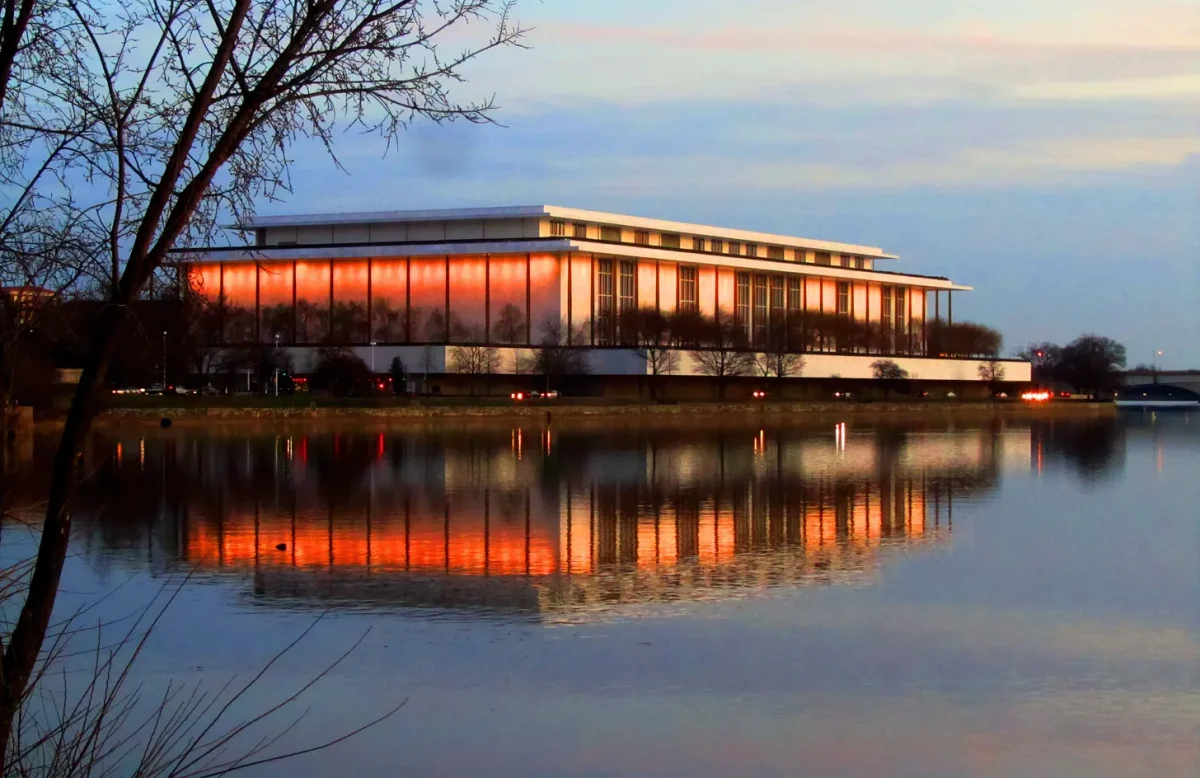
NOTE: This piece was originally published at our Substack newsletter A Public Witness.
At the end of his sermon on Sunday (Feb. 16), Rev. Howard-John Wesley had an announcement for the members of Alfred Street Baptist Church in Alexandria, Virginia, as the pianist gently played in the background.
“We are canceling our hosting of the Christmas performance at the Kennedy Center,” he said to loud applause and cheers inside the historic Black church. “We are not supporting this administration. We will not take hard-earned Black money and invest it in any way, we will not sit under that authority of a president who is unemploying our own members. We will find another venue, we will find another stage, we will find another theater, and we will go in there and proclaim the love of Jesus Christ and how God died for all the world.”
Wesley, pastor of the congregation since 2008, has led Alfred Street in significant growth from about 2,800 members to 10,000. Affiliated with both the National Baptist Convention USA and the Progressive National Baptist Convention (two historically Black denominational bodies), the church traces its history to 1806 as enslaved Black Baptists worshiped under the eye of White Baptists until receiving independence in 1850. Today, the church sits just across the Potomac River from Washington, D.C., and just a couple miles from Ronald Reagan Washington National Airport.
Shortly after Sunday’s worship service, the church posted a statement on its website and social media about the move. Calling it a “difficult decision” made “after prayerful consideration, deliberation, and discerning,” the church noted they simply couldn’t continue to partner with the Kennedy Center in D.C. after a shakeup in leadership at the Center last week.
“We believe that the new leadership’s opposition to the Kennedy Center’s long-standing tradition of honoring artistic expression across all backgrounds is misaligned with our unwavering commission to proclaim and practice the transformative and redemptive love of Jesus, to pursue justice, to promote equality, to embrace the gift of diversity, and to care for all of creation,” the church added in its statement. “We are actively exploring other venues where we can continue to share our witness of the birth of Jesus Christ in the excellence and prophetic tradition of the Black Church.”
The church has enjoyed a long partnership with the Kennedy Center, including putting on a large Christmas program there for years. Last year’s celebration featured 100 singers in the choir, 60 instrumentalists in the orchestra and band, 30 actors and dancers, and special guest singer Yolanda Adams. The church has also participated in special performances at the Kennedy Center, like a musical telling the story of African Americans that included reflections on the last words of several Black men killed by police officers or vigilantes. Additionally, the church has hosted in its building some “sneak peek” performances of parts of upcoming Washington National Opera productions ahead of the grand openings at the Kennedy Center. So why did they cancel? This issue of A Public Witness pulls back the curtain on the staging of a takeover of a national culture center.
The Kennedy Trump Center
The John F. Kennedy Memorial Center for the Performing Arts — or as it’s more commonly called, the Kennedy Center — is the U.S.’s national cultural center that opened in 1971 as a bureau of the Smithsonian Institution. Home to the Washington National Opera and the National Symphony Orchestra, this public-private partnership center receives federal funding for its building and maintenance while the programming is completely run with private funds. In addition to hosting numerous cultural and educational performances throughout the year, the Kennedy Center gives out its annual Mark Twain Prize for American Humor and five Kennedy Center Honors to people for their lifetime contributions to American performing arts.
The members of the Kennedy Center Board of Trustees are appointed by the president, but with staggered six-year terms so that they don’t all leave at once. That structure also means a president doesn’t start with complete control of the board since most members were previously appointed. Until this month.
President Donald Trump purged the board and quickly installed a number of sycophant supporters, including Donald Trump Jr. business partner Sergio Gor, Fox News host Laura Ingraham, Trump’s deputy chief of staff Dan Scavino, and Trump’s Bible business partner Lee Greenwood. The new board then fired Kennedy Center chairman David Rubenstein — who was first appointed to the board by George W. Bush and who is the Center’s biggest donor ever (to the tune of more than $111 million) — even though his current term wasn’t set to end until next year. After the unprecedented board purge, the new Trump-appointed board then did something else unprecedented: they elected the president as the new chairman.
“It is a Great Honor to be Chairman of The Kennedy Center, especially with this amazing Board of Trustees,” Trump declared with Orwellian flair after his unanimous election despite the fact he had never attended a performance at the Center. “We will make The Kennedy Center a very special and exciting place!”
The new board also named Ric Grenell, a Trumpian political strategist who pushed efforts to overturn the 2020 presidential election, as the new president of the Kennedy Center after firing Deborah Rutter, who led the Center since 2014 and has led orchestras or arts centers since 1986.
“With Trump’s takeover of the Kennedy Center board, this national cultural center has now, essentially, turned into a branch of the White House,” argued Andrew Taylor, director of American University’s Arts Management Program in Washington, D.C. “That’s a disturbing turn of events in a nation that celebrates free and creative expression.”
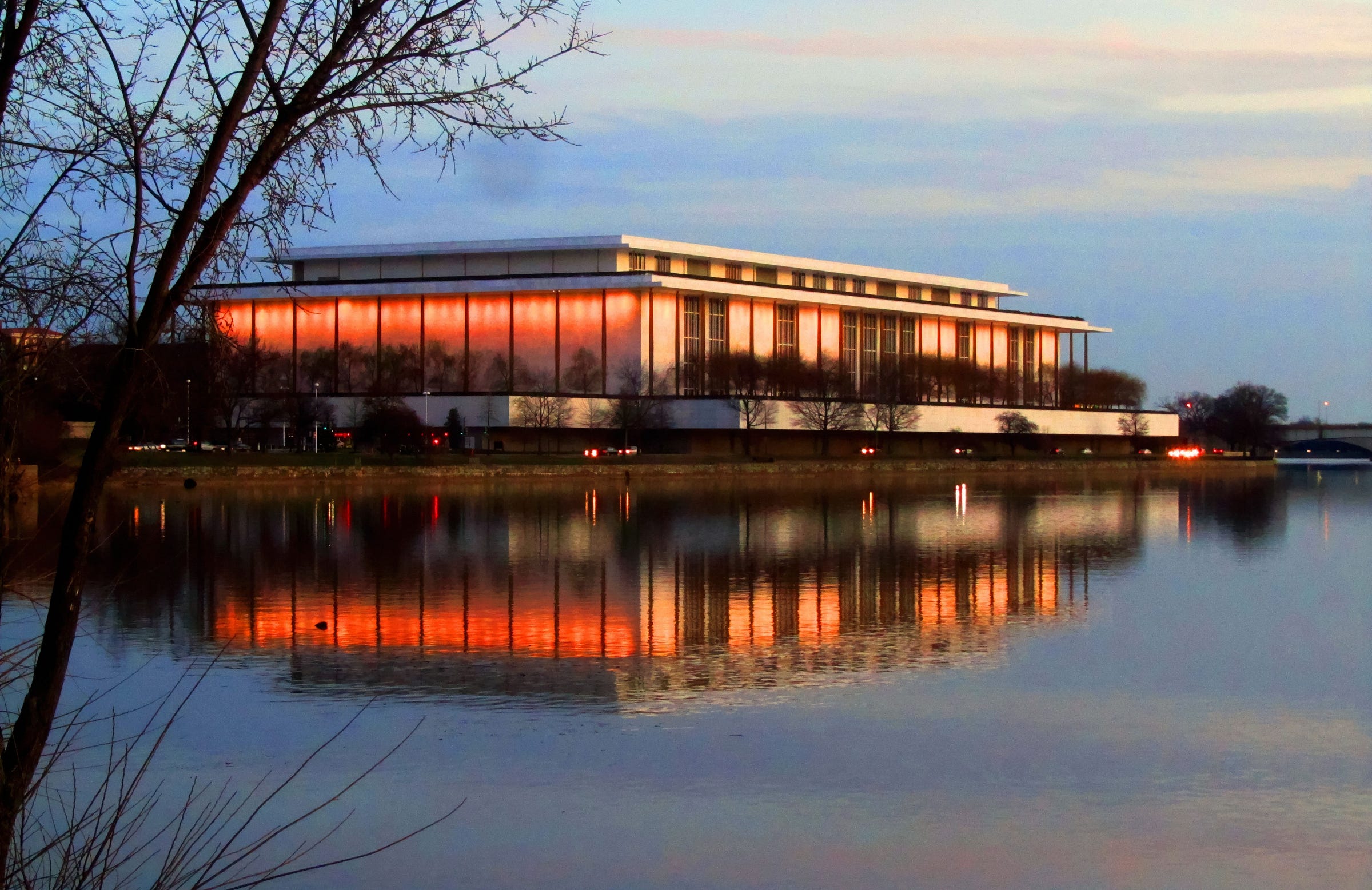
The Kennedy Center in Washington, D.C. (Tony Quinn/Alamy)
Trump justified his takeover of the Kennedy Center by claiming it had become too “woke” and pushed LGBTQ content — the same arguments by MAGA figures across the country to justify banning books in schools and libraries. The new leadership of the Center quickly canceled a National Symphony Orchestra concert to celebrate the LGBTQ community and a Kennedy Center-produced children’s musical about a shark who wants to be more like a fish (which could be seen as a metaphor for LGBTQ teens). Some artists quickly announced they would cancel their upcoming events at the Kennedy Center because of Trump’s takeover and the censoring of some viewpoints, including comedian Issa Rae, novelist Louise Penny, singer Amanda Rheaume, and the band Low Cut Connie. Additionally, TV producer Shonda Rhimes, singer Renée Fleming, and singer Ben Folds stepped aside from advisory positions at the Center to protest the new direction.
Trump’s desire to lead a performing arts center he’s never even attended might seem odd. But seizing control of the arts is something authoritarian leaders in other countries have done. Like Victor Orbán in Hungary and Vladimir Putin in Russia. Jan Burzlaff, a Jewish studies scholar at Cornell University, recently noted that both Nazi Germany and the Soviet Union also controlled what artists were allowed to create or perform.
“Authoritarian regimes have long treated culture as a battleground, knowing that seizing the arts means controlling public thought,” he explained. “These were not aesthetic decisions; they were political strategies designed to shape public perception and eliminate independent thought. Governments that seize cultural institutions are not just policing the arts; they are redrawing the boundaries of acceptable discourse.”
Charlotte Higgens, chief culture writer for the London Guardian, similarly noted that authoritarians like Orbán recognize that “culture creates the climate for emotion and memory, imprints national myths, and — often intangibly — acts on politics.” But even as she understands why Trump would target the Kennedy Center, the power of the arts also gives her hope.
“Artists — history tells us — will turn out to be the most creative and subversive documenters of the historical moment, and among the most nimble resisters of society’s corruption,” she explained.
And — as history also tells us — subversive and nimble resisters will be found in the Black Church.
As a public witness
Brian Kaylor

